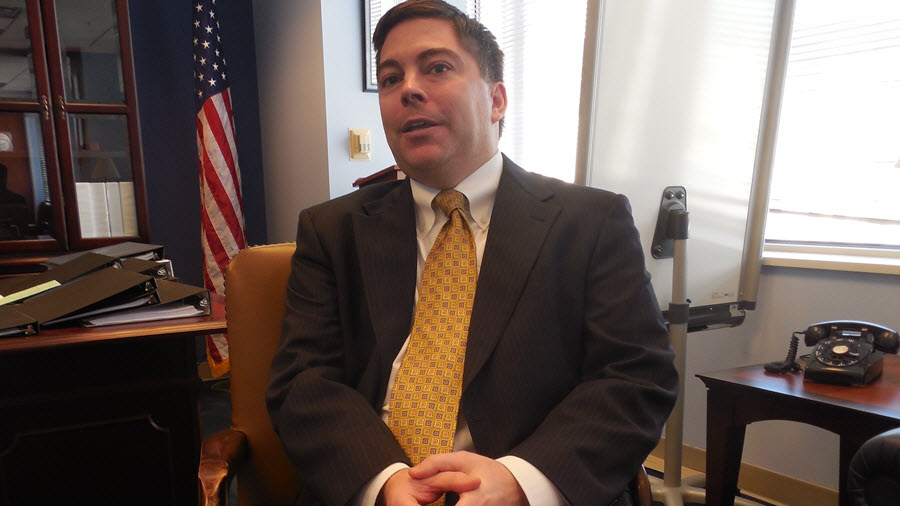O'Rielly Seeks Payola-Prevention Info From Music Cos.

The smarter way to stay on top of broadcasting and cable industry. Sign up below
You are now subscribed
Your newsletter sign-up was successful
FCC commissioner Michael O'Rielly has reached out to some major music companies to ask what they are doing to protect against payola, which is exchanging something of value for broadcast airplay. O'Rielly also suggests that the fact those restrictions don't apply to streaming or Internet radio is problematic.
Last September, O'Rielly asked the Recording Industry Association of America (RIAA) about reports of possible violations of federal anti-payola laws and regs, but was told the he needed to reach out to individual members.
He has now done so.
In letters to the heads of Sony Music Entertainment, Universal Music Group, and Warner Music Group, O'Rielly said that "even the most cursory review of consumer complaints and assertions provides cause for concern regarding the persistence of payola."
O'Rielly, who is not fan of government overregulation, said he was not saying payola restrictions were perfect, including that they applied to radio but not to streaming, Internet radio or podcasts.
He said that "asymmetry" clearly impacts the radio industry's financial well-being and perhaps even "long-term sustainability."
He also said that compliance is tough given that radio companies deliver content "via multiple platforms and methods."
The smarter way to stay on top of broadcasting and cable industry. Sign up below
He said in the interests of better understanding those challenges, he wants to know what mechanisms are in place to prevent payola.
He asked for answers to the following questions by the end of February.
1. "As technologies become more complex and incite platforms other than traditional over-the-air broadcasting, what types of arrangements exist between your company and radio broadcast stations for song placement and frequency of air time?
a. "In this context, how does your organization define payola and what specific practices does it deem to be in violation of federal law and FCC regulations?
b. "Does your organization deem the solicitation of artist appearances and performances with implied or express benefits, or pressures against non-participation. as legally prohibited?
2. "What specific procedures have you developed, adopted, and implemented to ensure that payola, as defined by federal law, does not occur within your organization?
a. "What oversight protections do you have in place to report violations and verify compliance?
b. "Are company employees required to be trained in payola prohibitions and potential penalties?
3. "Are you aware of any individual or company, in partnership with, or associated with your organization, that has provided or sought to provide monetary benefit, service, or other consideration in violation of current payola prohibitions in the last five years?
a. "If yes, how was the conduct addressed?
b. "Have any of your organization’s employees, partnerships, or associations been terminated or disciplined due to potential or actual payola violations?
c. "Please provide specific details of any such instances.
4. "In the last five years, how many times have you or your organization directed a radio broadcast station to include a notification in a broadcast pursuant to the payola statutory provisions?
5. "Where do you see the greatest risk for potential violations within the recording industry as it interacts with ever-changing audio distribution technologies, including the radio broadcast industry’?
6. "Have existing federal statutes and the relevant internal compliance processes worked to restrict payola?
a. "Where do you see weaknesses in the current approach or need for reform to target and address any remaining violators?"
Contributing editor John Eggerton has been an editor and/or writer on media regulation, legislation and policy for over four decades, including covering the FCC, FTC, Congress, the major media trade associations, and the federal courts. In addition to Multichannel News and Broadcasting + Cable, his work has appeared in Radio World, TV Technology, TV Fax, This Week in Consumer Electronics, Variety and the Encyclopedia Britannica.

